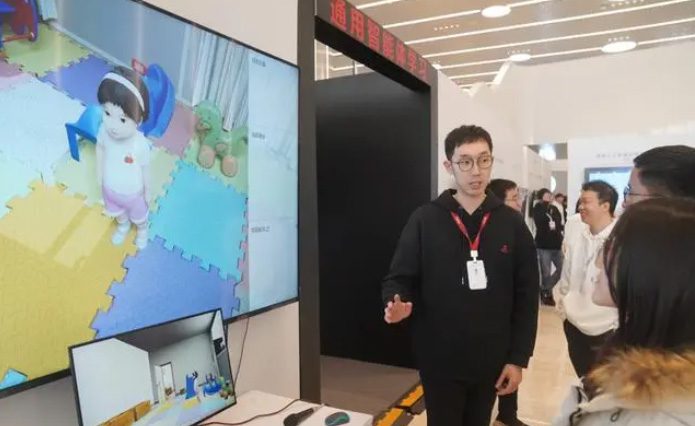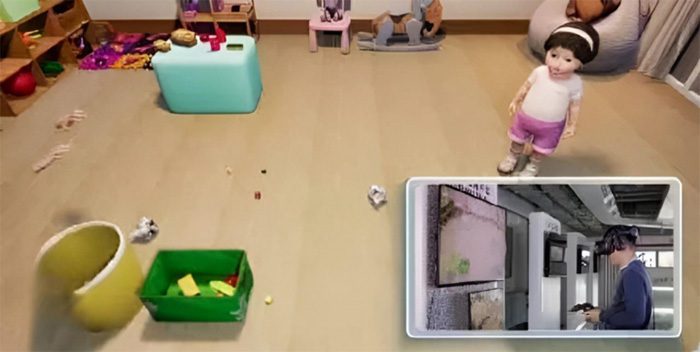Chinese Scientists Successfully Develop the World’s First Virtual AI Entity: “Little Girl”.
According to Beijing Daily, the affectionate name given to the AI girl is Little Girl, or Tong Tong in Chinese. This groundbreaking AI was unveiled at the International Exhibition on General Artificial Intelligence Technology held in Beijing on January 28-29, under the sponsorship of the Beijing Institute of General Artificial Intelligence (BIGAI).

A staff member introduces Tong Tong at the exhibition. (Photo: Beijing Daily).
Unlike popular large language models in AI, Tong Tong can actively perform tasks independently, ranging from exploring her environment to cleaning up spills and wiping surfaces. She possesses her own emotions and intelligence, high self-learning capabilities, along with an open and cleanliness-loving personality.
At the exhibition, Tong Tong interacted freely with visitors. If someone spilled milk, Tong Tong would find a cloth and clean it up herself. She adjusted a crooked picture frame on her own. If the frame was too high for her to reach, she would look for a stool to assist her without any human help.
“Tong Tong possesses intelligence, strives to absorb and understand the common sense taught by humans. She can distinguish right from wrong and express her attitude in various situations,” BIGAI stated in an introductory video.
Based on general artificial intelligence standards and specific testing tasks, Tong Tong exhibits behaviors and abilities similar to a 3-4-year-old child. Through exploration and interaction with humans, she continuously enhances her skills, knowledge, and values.

Visitors interacting with Tong Tong at the exhibition. (Photo: BIGAI).
One of the key aspects of general intelligence is possessing social understanding and common sense akin to humans. Additionally, an AI entity must promote distinct values, not only being capable of completing numerous tasks but also defining new tasks independently.
“To advance toward general AI, we must create entities that can understand the real world and possess a range of skills,” said BIGAI Director Zhu Songchun.
Zhu Songchun, who spent 28 years studying, living, and working in the United States, left his position at the University of California in 2020 to return to China and establish BIGAI. As a world-renowned scholar in the field of artificial intelligence, Zhu’s research areas include general AI, computer vision, autonomous robotics, and many other fields. This scientist has previously received the Young Researcher Award from the U.S. Naval Research Laboratory and the Marr Prize from the International Conference on Computer Vision, one of the highest awards for research papers in this field. He has also served as the Chair of the Conference on Computer Vision and Pattern Recognition (CVPR) and was the Deputy Director of the Senior Member Review Committee of the IEEE Computer Society. |




















































